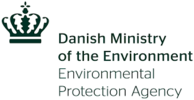
Proposals for change in environmental risk assessment (ERA) from scientists, the EC advisory mechanism and EFSA have led to a proposal for developing an new multiple stressor risk assessment for bees. The proposal is at the suggestion stage but not yet implemented as guidance. This project will attempt to define a method of implementing the new ERA approach and evaluate the implications for Denmark and populations of honey and solitary bees. The project explores the characterisation of risk engendered by the new ERA, as well as investigating how risk can be communicated using trusted information sources. Key issues addressed by the project are the effect of complexity of the ERA scenario on risk as well as the effect of local and national conditions by comparison between Denmark, Poland, and The Netherlands. The hypothesis that honey bees are more resilient than solitary bees will also be evaluated since focus in ERA should be on the most sensitive non-targets exposed. The results will also be used to evaluate the performance of the models suggested for use in ERA, thus contribute the level of trust that might be placed in the new system.
The project will use a combination of new GIS approaches to create very detailed simulations of actual landscapes from Denmark, Poland and The Netherlands, and use these to evaluate the impact of pesticides via scenarios co-developed with key actors. Results will be compared within and between countries, and within Danish simulations will be compared to results obtained by simplifying the input and model representations in stages. This will address the issues related to the gains and costs of increasing simulation detail, and to the question of whether the complex system of feedbacks in the honey bee increases their resilience to pesticide impacts. The models will be evaluated by comparison of predictions within the specific landscapes combined with monitoring of bees to determine the level of reliability of the models under specific landscape conditions.
The results of the project can be expected to have wide impacts, both as information that might feed development of multiple stressor ERA guidance for bees, and scientifically, by evaluating context dependency of ERA and the influence of complex system structure on population resilience. This would be the first attempt to implement a multiple stressor ERA based on the new EFSA ideas, and therefore would have a high degree of novelty and public interest.
Sort by: : Date | Title
2021-2025
Danish Environmental Protection Agency
